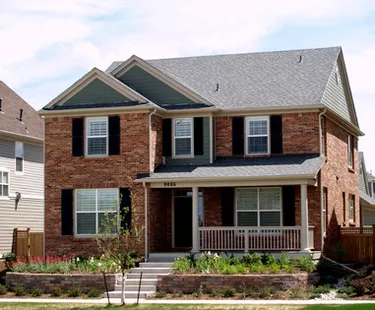
The legal language used throughout the foreclosure process can be confusing for homeowners. A commonly used term is "default." A default refers both to the missed mortgage payments and to the default judgment that the court issues. Neither terms signal good news for the homeowner; however, a default judgment is significantly worse.
Foreclosure Process
Video of the Day
Missing mortgage payments is the start of the foreclosure process. Lenders typically attempt to contact the homeowner via mail regarding the first missed payments. They subsequently make phone calls and send letters if the mortgage continues to go unpaid. At this point homeowners are considered to be in default if the mortgage goes unpaid for three months. Lenders send a notice of default letting the customer know foreclosure proceedings are imminent. At any time the homeowner can stop the foreclosure process by attempting a loan modification or working with the lender to work out a solution.
Video of the Day
Default Judgment
If the homeowner fails to respond to the lender's notices the lender may file a motion for default judgment. This is a judgment against the homeowner for lack of payment and breaking the mortgage contract. If the owner does not contest the motion, the court assumes that the owner has no objection or argument against the lender's claim of contractual breach. The homeowner is sent the notice of default. In non-judicial foreclosure states, this is the start of the foreclosure process. Non-judicial refers to foreclosures that do not require a judge's signature for the home to be seized and sold at auction. In judicial states, the owner is sent a notice of the foreclosure hearing and has the opportunity to come to court and contest the foreclosure.
Avoiding a Default Judgment
Homeowners can avoid a default judgment by contacting their lender as soon as they begin to have trouble meeting the mortgage payments. There are government programs such as loan modifications and short sales that can assist distressed owners. If the owner is unable to negotiate with the lender he can still contest the default judgment by filing a motion with the court to vacate or dismiss the judgment. Lenders must prove that they have the right to foreclose before seeking a judgment. Mortgages that have been transferred between lenders are sometimes missing the proper paperwork, allowing owners to have the judgment vacated until the paperwork is in order. In judicial states owners may contest the foreclosure at the hearing.
After the Default Judgment
As previously stated, the default judgment starts the formal foreclosure process. A lack of response by the homeowner means that the home will be sold at auction. The timing of the sale varies from state to state, but usually it averages 30 days after the default notice is sent. In judicial states this may take a little longer since a judge must sign the foreclosure order. If the home sells at the auction the owner is sent a written notice of termination. This notice gives the now previous owner between five and 30 days to vacate the home. Failure to vacate the premises may lead to eviction proceedings.